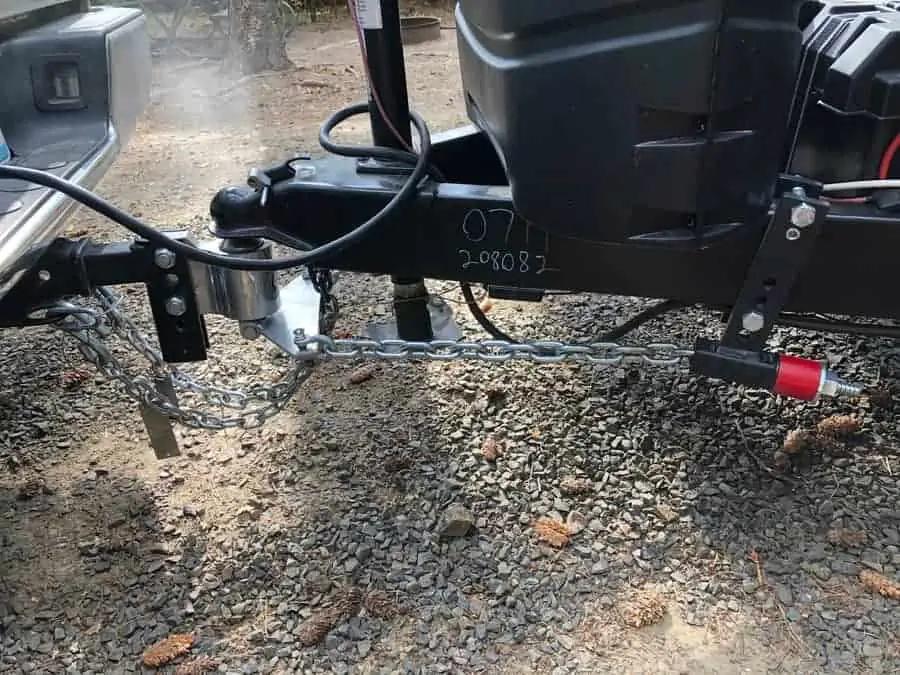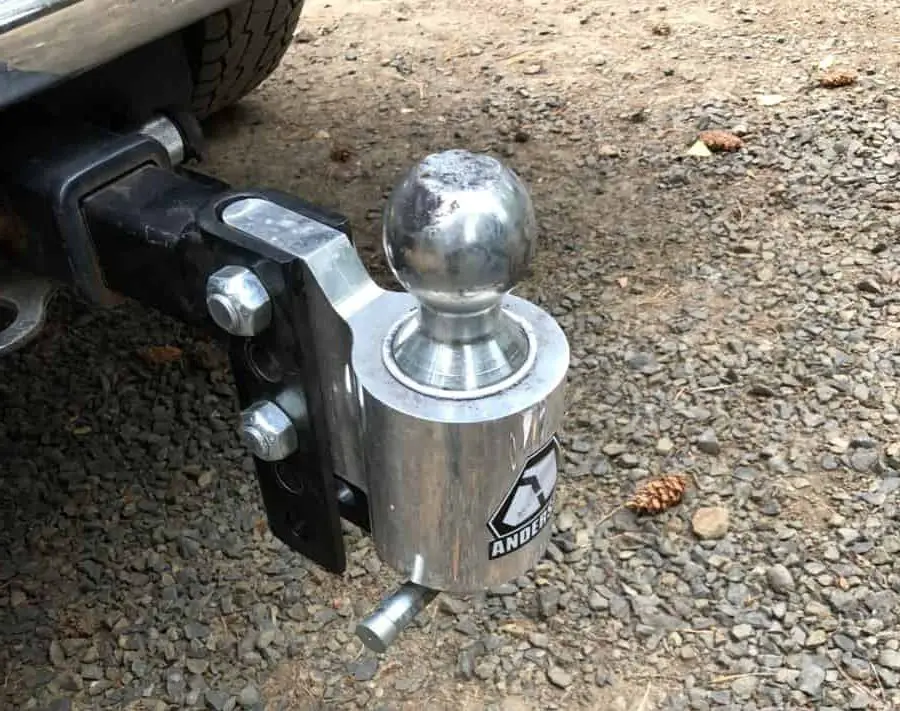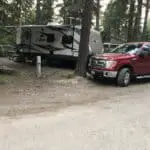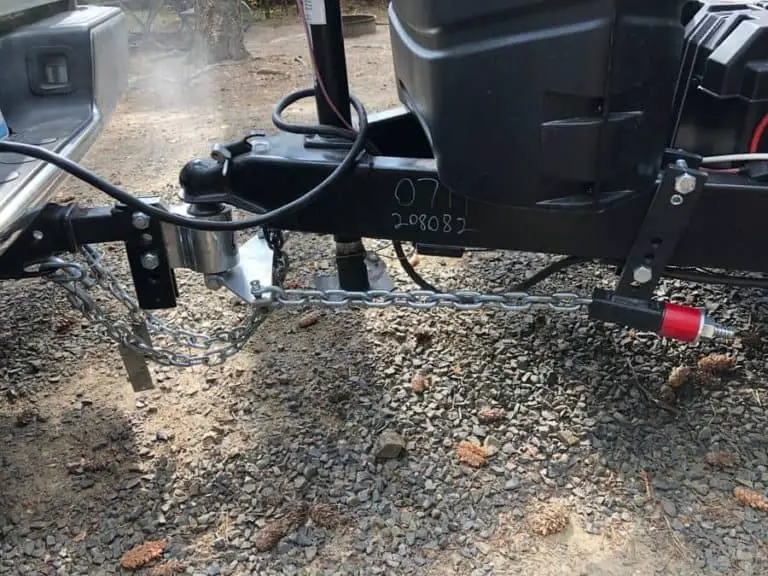Why Does My Weight Distribution Hitch Make Noise and How to Quiet It?
Weight distribution hitches (WDH) are meant to make your towing experience easier and more enjoyable. However, depending on your setup and the condition of your hitch, there’s a chance that it can make it more uncomfortable and noisy. Like all types of hitches, weight distribution hitches are prone to squeaking, popping, and creaking noises.
If your weight distribution hitch is making noise, it could be coming either from the sway control bars or the ball portion of the hitch. Hitch balls can be greased to lower noise, but noise from sway control bars is supposed to happen due to the friction and cannot be remedied.
If you love your weight distribution hitch but can’t stand the noises it’s making, you’ve come to the right place. WDHs make towing heavy trailers and RVs easier and safer. However, when this comes at the price of loud noises, it can make your towing experience uncomfortable. While the noises are probably nothing to worry about, there’s a chance that something could be wrong with your towing setup.
How to Prevent Noises With the Weight Distribution Hitch Ball
If the noises are coming from your hitch ball, the problem is much easier to solve. Noisy hitch balls are common with all types of trailer hitches and become more prevalent the older your hitch is. However, even new hitches have a tendency to squeak, creak, and groan. Here’s what you need to do.
Hitch Ball Lube
A squeaking hitch ball is almost always caused by the friction between the trailer coupler and the hitch ball. As the two are rubbing together, it will eventually wear away at the ball and cause a slight squeaking. Most high-quality hitch lubes like our favorite here are made of petroleum, and they’re very easy to use. Simply rub a handful of the lube over the hitch ball and the squeaking or creaking noise should disappear.
General Purpose Grease
Another awesome product to eliminate trailer squeak on your weight distribution hitch is general purpose grease. Grease works the same way that lube does and you apply it in a similar fashion. The main difference between general-purpose grease and hitch ball lube is that grease is more water-resistant and slightly more heavy-duty. We use Red and Tacky as it performs great.
Lithium Grease
Lithium grease is a cleaner and less messy version of general-purpose grease and hitch ball lube. It works in the same way that the previous options do, but you won’t have a mess on your hands when you’re done.
Soap and Wax
If you want to grease your hitch ball on the cheap with items you probably have on hand, you can use soap and wax. The benefit of using soap and wax is that you get away from petroleum and chemical products, which can ultimately wear away at metal. You can use anything from dish soap, hand soap, old candle wax, wax paper, or anything else you have on hand that fits the bill.
Ball Covers
Hitch ball covers are more of a preventative measure to keep your hitch from getting to the point of squeaking. Keeping your hitch ball covered with an appropriate ball cover will keep it from rust and corrosion caused by the elements. You can’t have one on your ball while a trailer is connected, but covers will keep your weight distribution hitch from squeaking for as long as possible.
Why is My Weight Distribution Hitch Creaking?
If your weight distribution hitch is making a creaking noise rather than a squeaking one, there’s a good chance it’s being caused by the sway control bars. Creaking noises are common on weight distribution hitches with sway control bars, especially if you’re making a tight turn where there’s extra torque or tension being put on your bars.
If you hear creaking noises but don’t have sway control bars, it’s likely being caused by the weight distribution hitch itself. WDHs are designed to evenly distribute weight along the entire frame of your truck and trailer or RV. Therefore, as you’re driving down the road, it’s common for creaking noises to occur as the hitch works to keep the weight evenly distributed.
What About Popping Noises?
Popping noises are a whole different animal when it comes to weight distribution hitches. They’re almost exclusively caused by sway control bars that attach from the hitch to the trailer tongue. These bars make pops and creaks when you make sharp turns where extra torque or tension gets applied to the bars. While they sound uncomfortable and troubling, they’re actually quite normal and aren’t cause for alarm.
How Do I Stop My Weight Distribution Hitch From Squeaking?
Squeaking noises from your weight distribution hitch are almost always caused by friction between the hitch ball and the trailer coupler. The best way to prevent this squeaking is by applying a product such as Liquid Wrench White Lithium Grease, Reese Hitch Ball Lube, or Valvoline General Purpose Grease. A generous dab on the ball of your hitch will help prevent any squeaks from occurring.
Should You Grease a Weight Distribution Hitch?
While it’s ok to apply grease to the ball portion of your weight distribution hitch, you should never apply grease to the sway bars of your hitch. In order to work properly, the sway bars have to create friction when they connect to the trailer tongue and truck hitch to prevent sway. If you hear popping noises caused by the sway bars and apply grease to make them stop, you’ll prevent the bars from creating friction. This will cause the bars to be useless and make them unable to do their job.
How do You Lubricate a Weight Distribution Hitch?
In the same way that you should never apply grease to the bars of your weight distribution hitch, you also shouldn’t apply lubricant to them. This will eliminate the friction they require to do their job. However, you can apply lubricant to the ball portion of the hitch to prevent creaks and squeaks.
To lubricate a weight distribution hitch, you should first choose which product you want to use. Any of the options listed above work great with all types of hitches. Once you have the right product in hand, use your hand or a towel to apply a generous dab of grease or lubricant to the ball of your hitch. As the trailer coupler closes over the ball, the layer of grease will prevent the friction between the coupler and the ball from creating a squeak.
Be the first to be notified about FREE tips, hints, coupon codes, and email-exclusive information. All for FREE!







